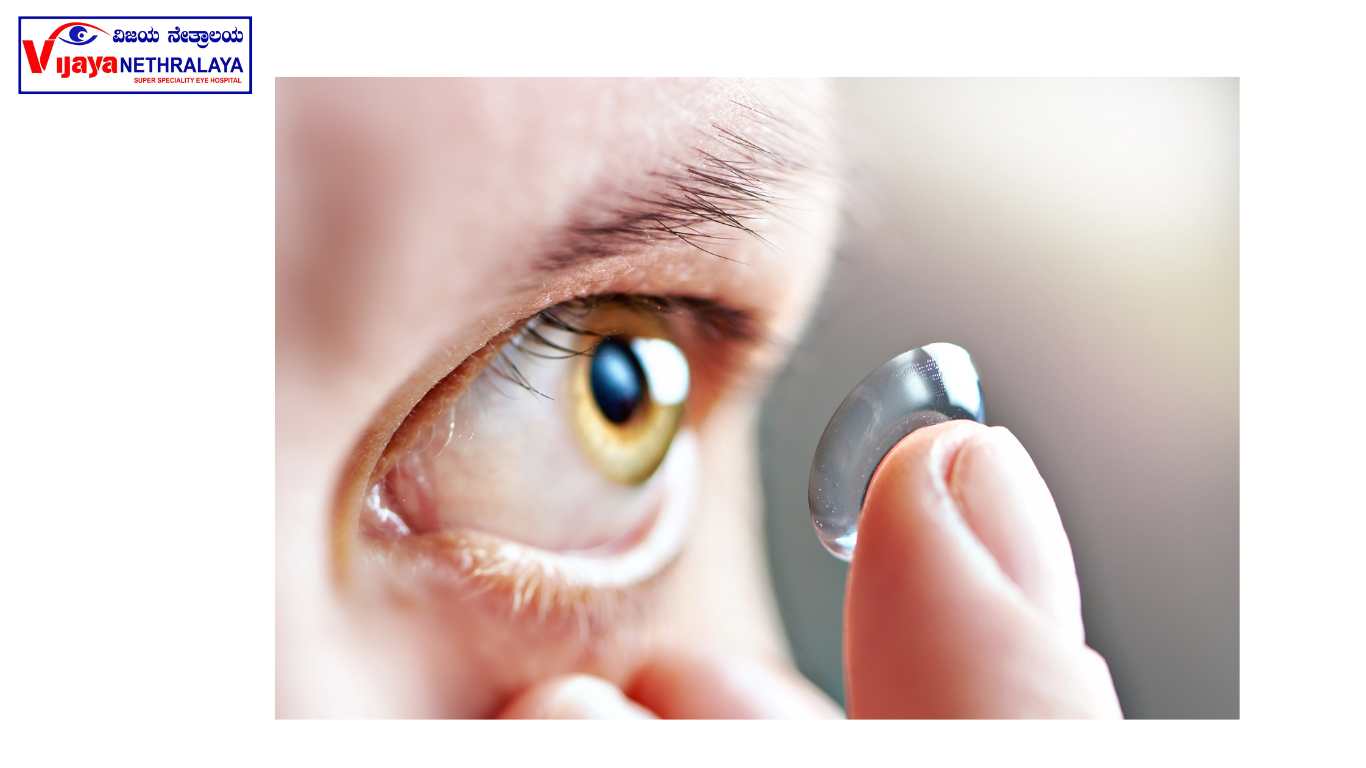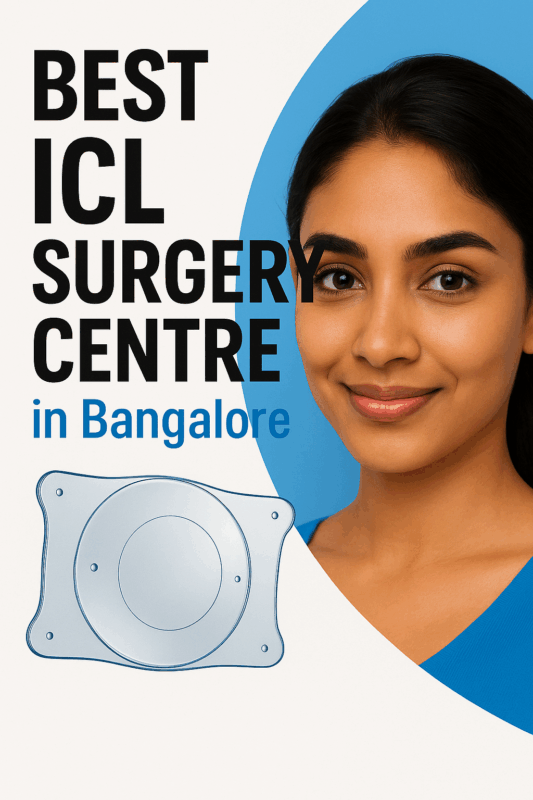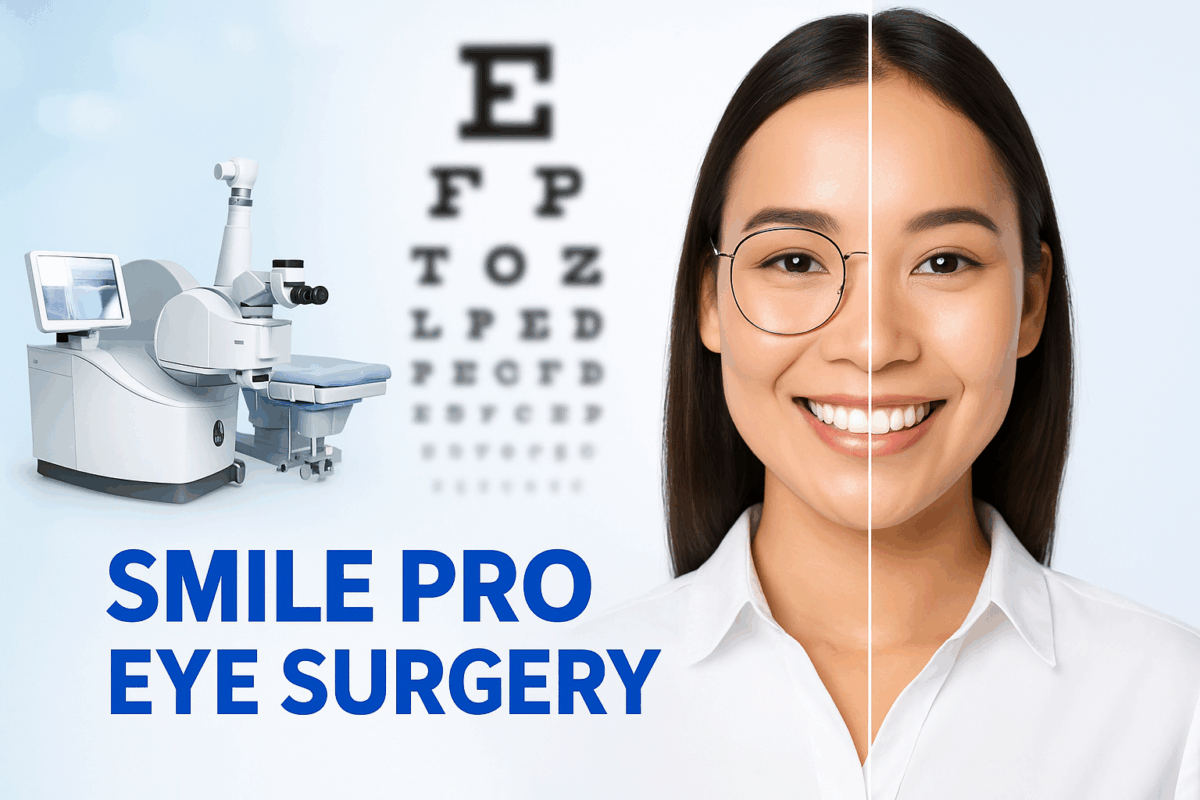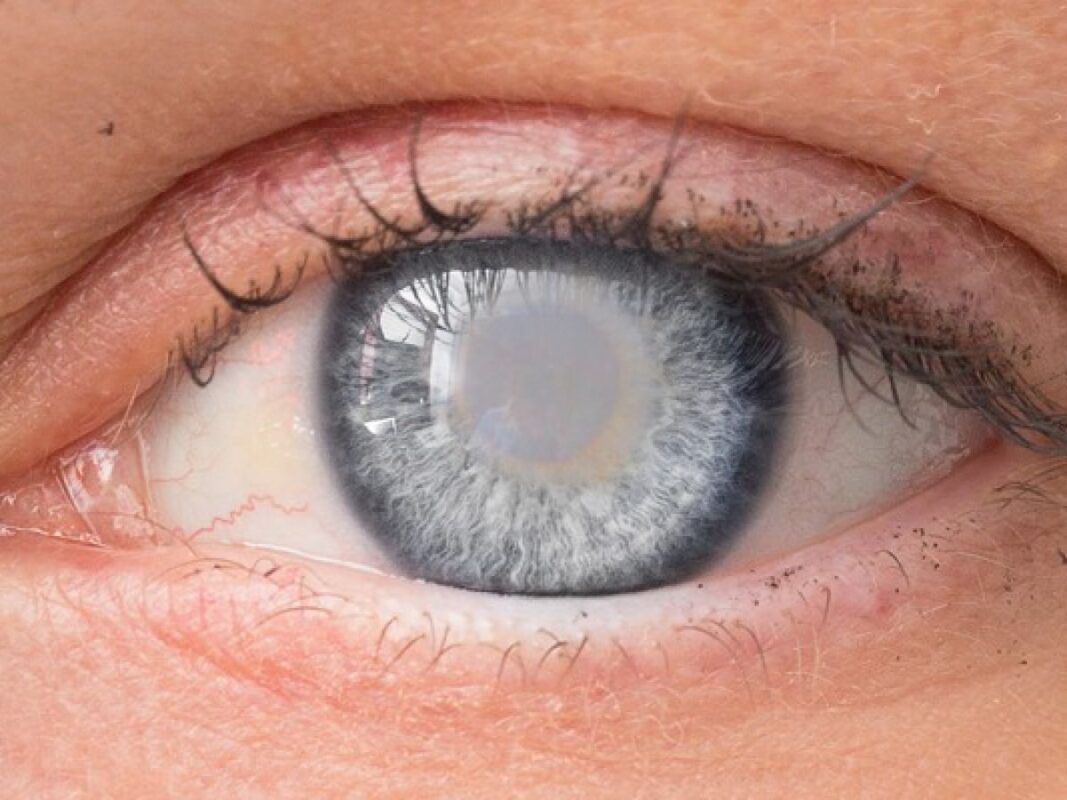Introduction:
In recent years, Soft Permanent Contact Lenses have gained immense popularity due to their comfort and convenience. Whether you have been wearing traditional contact lenses or considering them for the first time, this guide will serve as your ultimate resource. So, let’s embark on this journey to explore the world of Soft implantable contact lenses
What are Soft Permanent Contact Lenses?
Soft Permanent Contact Lenses, often referred to as extended-wear or continuous-wear lenses, are advanced optical devices designed to correct vision problems. They are crafted from soft, flexible materials that allow oxygen to reach the cornea, making them suitable for extended use.
These lenses come in various types, including daily wear, bi-weekly, and monthly lenses. The choice depends on your specific visual needs and lifestyle.

Advantages of Soft implantable contact lenses:
Soft Permanent Contact Lenses offer several advantages over traditional eyeglasses and even regular soft implantable contact lenses:
1. Enhanced Comfort
These are incredibly comfortable to wear due to their soft and pliable material. They conform to the shape of your eye, ensuring a snug fit.
2. Continuous Vision Correction
Unlike glasses, these lenses provide continuous vision correction, ensuring clear sight in all situations without any obstruction caused by frames.
3. Uninterrupted Lifestyle
With Soft implantable contact lenses you can enjoy an active lifestyle without worrying about glasses falling off or getting in the way during sports and outdoor activities.
4. Cosmetic Appeal
Many individuals choose Soft Permanent Contact Lenses for cosmetic reasons. They can change the color of your eyes or even enhance their natural appearance.
5. Reduced Peripheral Distortion
Unlike eyeglasses, these lenses do not create peripheral distortion, ensuring a natural field of vision.
6. Easy Maintenance
Caring for Soft implantable contact lenses is straightforward, and we will delve into the care routine later in this guide.
Considerations Before Getting Soft Permanent Contact Lenses:
Before you make the switch to there are essential considerations to keep in mind:
Eye Examination:
Consult an eye care professional to determine whether Soft Lenses are suitable for your eyes and prescription.
Allergies and Sensitivities:
Inform your optometrist about any allergies or sensitivities you may have, as this can affect the choice of lens material.
Lifestyle:
Consider your lifestyle and daily activities. If you are involved in activities with a high risk of eye injury, discuss this with your eye care specialist.
Costs:
Understand the cost implications, including the initial purchase and ongoing expenses for lens replacement and maintenance.
Types of Soft Permanent Contact Lenses:
Soft Permanent Contact Lenses come in various types to cater to different vision needs. Here are the main categories:
1. Spherical Lenses:
These lenses correct common vision problems like myopia (nearsightedness) and hyperopia (farsightedness). They have the same power in all meridians and are ideal for individuals with a simple prescription.
2. Toric Lenses:
Toric lenses are designed to correct astigmatism, a condition where the cornea is not perfectly round. They have different powers in different meridians and need to be positioned correctly on the eye.
3. Multifocal Lenses:
Multifocal lenses are designed for individuals with presbyopia, a condition that affects near vision as we age. They provide multiple prescriptions in one lens, allowing for clear vision at various distances.
Getting Fitted for Soft Permanent Contact Lenses:
Obtaining Soft Permanent Contact Lenses requires a professional fitting process. Here’s what you can expect during this procedure:
- Initial Consultation: During your first visit, your optometrist will conduct a comprehensive eye exam to assess your vision and eye health. They will discuss your lifestyle and visual needs.
- Lens Selection: Based on the examination, your eye care specialist will recommend the most suitable type and brand of Soft Permanent Contact Lenses.
- Fitting: Your optometrist will measure the curvature and size of your corneas to ensure a proper fit. They will also provide you with trial lenses to test comfort and vision quality.
- Instruction and Care: You will receive thorough instructions on how to insert, remove, and care for your Soft Permanent Contact Lenses. It’s crucial to follow these guidelines diligently.
- Follow-Up Visits: Regular follow-up visits are essential to monitor the condition of your eyes and the performance of your lenses. Adjustments may be made if necessary.
Soft Permanent Contact Lenses Care Routine:
Proper care and maintenance of your Soft Permanent Contact Lenses are crucial for your eye health and the longevity of the lenses. Here’s a step-by-step care routine:
- Wash Your Hands: Before touching your lenses, always wash your hands with mild soap and water. Rinse and dry them thoroughly.
- Remove Your Lenses: Take out your lenses before going to bed or as instructed by your optometrist.
- Clean Your Lenses: Use a recommended multipurpose solution to clean your lenses. Gently rub them with your fingertip, then rinse with the solution.
- Store Properly: Place your lenses in a clean lens case filled with fresh solution. Ensure the case is cleaned and replaced regularly.
- Replace as Directed: Soft Permanent Contact Lenses have a specific replacement schedule. Adhere to it strictly, as extended use can increase the risk of eye infections.
- Avoid Water Contact: Never expose your lenses to water, whether it’s tap water, swimming pools, or hot tubs. Water can introduce harmful microorganisms to your eyes.
Author Details:
Dr. Sushruth Appajigowda holds a prominent position as a Cornea, Cataract, Glaucoma, and LASIK Surgeon in Bangalore. He serves as the chief Cataract and Refractive surgeon at Vijaya Nethralaya Eye Hospital, Nagarbhavi Bangalore. Renowned as one of the finest LASIK surgeons nationwide, he brings with him over 12+ years of experience across multiple LASIK platforms, including ZEISS, ALCON, SCHWIND, AMO, and Bausch and Lomb. Having successfully conducted over 5000 LASIK procedures, Dr. Sushruth holds the title of a Certified Refractive Surgeon and a Fellow of the All India Collegium Of Ophthalmology. Furthermore, he stands as a distinguished speaker at various National and International Forums, using his expertise to guide you in selecting the most suitable procedure based on your health requirements.

FAQ:
Q: Are implantable contact lenses suitable for all prescriptions?
A: While Soft Permanent Contact Lenses can correct many vision problems, they may not be suitable for every prescription. Consult with your eye care professional to determine if they are right for you.
Q: Can I wear Soft Permanent Contact Lenses while swimming?
A: It’s best to avoid wearing Soft Permanent Contact Lenses while swimming, as water can introduce bacteria and lead to eye infections.
Q: How often should I replace my Soft Permanent Contact Lenses?
A: The replacement schedule varies depending on the type of lenses you have. Follow your optometrist’s recommendations closely.
Q: Are Soft Permanent Contact Lenses safe for children?
A: Soft Permanent Contact Lenses can be safe for children, but it depends on their individual needs and maturity level. Consult with an eye care specialist for guidance.
Q: Can I switch between eyeglasses and Contact Lenses?
A: Yes, you can switch between eyeglasses and Contact Lenses as needed. Just ensure you follow the recommended care routines for both.
Q: What should I do if my Soft Permanent Contact Lenses feel uncomfortable?
A: If you experience discomfort, irritation, or redness while wearing Contact Lenses, remove them immediately and consult your eye care provider.
Conclusion:
In this comprehensive guide, we’ve explored the world of Soft Contact Lenses. From their advantages to the fitting process and care routine, you now have a wealth of information to make an informed decision. Remember, your eye health is paramount, so always follow the guidance of your optometrist for the best results.











